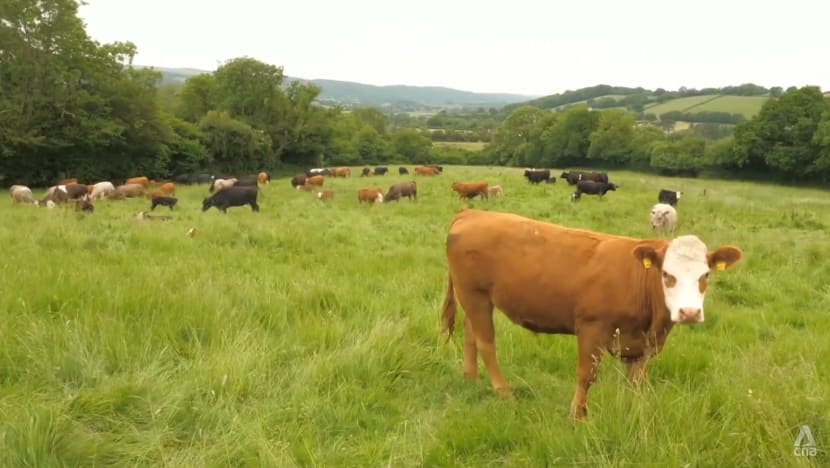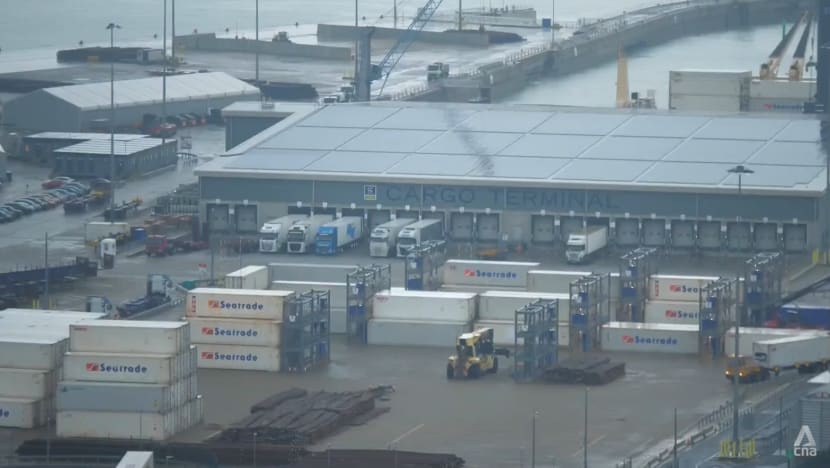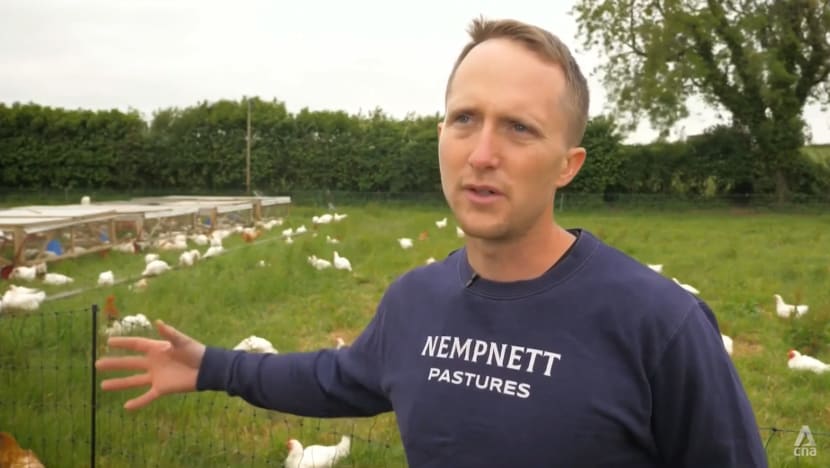
Farmers in the UK are required to produce food to higher environmental and animal welfare standards, compared to new produce entering the country.
The United Kingdom formally agreed to join the Asia Pacific trading bloc, the Comprehensive and Progressive Agreement for Trans-Pacific Partnership (CPTPP), signing the accession paperwork in New Zealand on Jul 16 this year.

Farmers in the UK are required to produce food to higher environmental and animal welfare standards, compared to new produce entering the country.
NORTH SOMERSET: There is growing concern among some farmers in the United Kingdom that cheaper and lower quality food could soon enter the country because of new trade agreements and threaten their livelihoods.
The UK formally agreed to join the Asia-Pacific trading bloc, the Comprehensive and Progressive Agreement for Trans-Pacific Partnership (CPTPP), signing the accession paperwork in New Zealand on Jul 16 this year.
To calm the growing fears, Prime Minister Rishi Sunak vowed to put farming at the centre of the country’s trade policy and ban low quality imports.
While new trade deals could open doors to fresh export opportunities for British produce, there are concerns that more inferior products may come back the other way.
Many in the agricultural sector feel that trade deals with Australia and New Zealand have been detrimental to UK farmers.
Local farmers are required to produce food to higher environmental and animal welfare standards, but are disadvantaged when competing with new produce entering the country.
Hence, they do not want similar mistakes to be made with the CPTPP.

Mr Sunak has made trade and international relations a key part of his administration.
In an open letter to farmers in May, he argued that the CPTPP framework is a good platform to build upon, and made six promises covering everything from protecting UK food standards to trying to open up new global markets, even with places outside of pre-existing free trade agreements.
The UK is at a midpoint between the initial post-Brexit trade continuity programmes, and having a fully matured trade policy, said Dr Joshua Paine, a senior lecturer of law at the University of Bristol.
The international trade and investment law expert told CNA that although some of the headlines about the importance of the CPTPP for the UK have been disparaging, the deal would be beneficial in the years to come.
“I think joining CPTPP, though, does have strategic significance for the UK and the economic significance of the deal may grow. The CPTPP currently has applications from five other parties besides the UK to join the deal. They include, for example, China, Taiwan and a handful of Latin American countries,” he said.
“There are other states who haven't formally applied yet, but who have expressed some interest in joining. For example, South Korea or Thailand.”

Farmers across the UK are looking forward to anything that would help their struggling industry, and promote high-quality British produce abroad.
“I think having that reputation on a global market, it’s got to be a good thing. It means we can add value to our product and sell a product at a premium price,” said Nempnett Pastures farmer George Ford.
Mr Ford’s family has farmed the plot of land in South West England for six generations.
They are now mixing tradition with innovation, to transform farming and make it as natural as it can be, with high welfare and high quality as the ultimate goal.
Gone are the intensive farming methods, the over-reliance on pesticides and the mass production that have become a part of the UK landscape.
Pest control is also completely natural, left to chickens which spend their lives outdoors under 24-hour protection.

Mr Ford said the transformation has been worth the effort and the cost, and that he has gone from hating his job to loving it.
While the business has taken an initial “financial hit”, he believes the changes will help it grow in the longer term, and rear the animals in an “enjoyable, fun (and) easy” manner.
“There are other elements to it. The business is now very different. It's got multiple levels to it. So I guess if you want to do it this particular way, it's understanding that there's more than just raising the animal,” he told CNA.